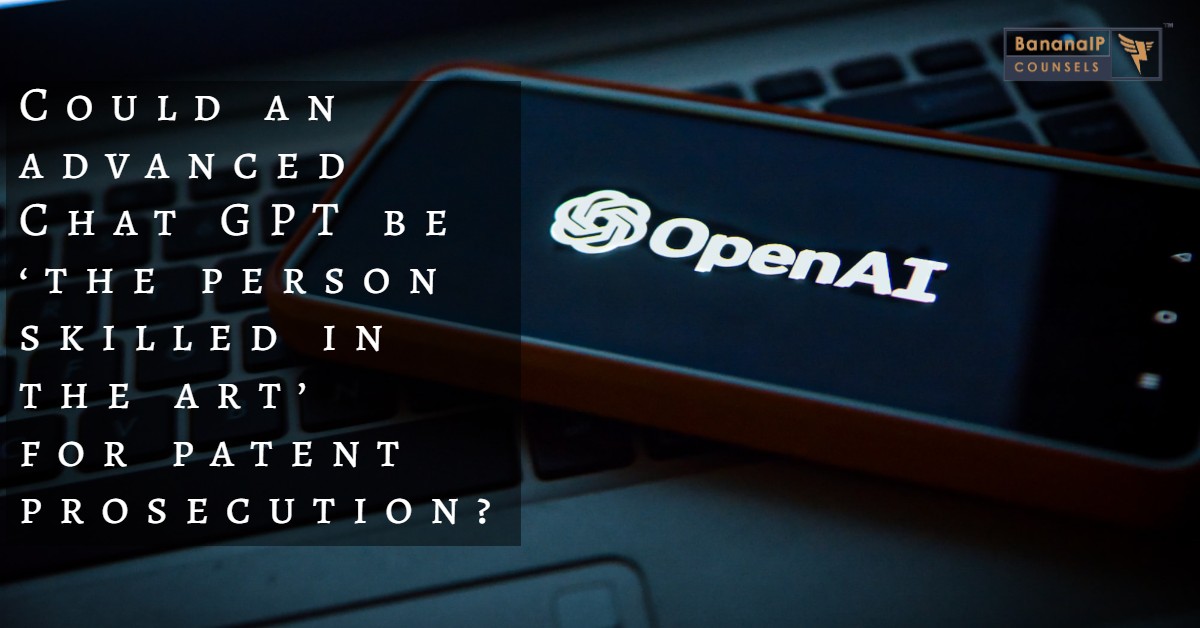With the launch of GPT 4, the OpenAI, pioneers of research in Artificial General Intelligence (AGI), have initiated a wide range of discussions from advancing human intelligence to replacing humans in several job positions. In the area of Intellectual property rights, especially for patents, AI has played its role as a drafter for some years (PatentPal, since 2018[i]). The efficiency of software as an assistant in patent drafting to the extent of possibilities where AI could replace the profession of Patent Agent is an active debate. Nevertheless, there is also a possibility of AI similar to GPT-4 or its much more advanced versions to play the role of a ‘person skilled in the art’ in patentability assessment while prosecuting patent applications.
Who is a ‘person skilled in the art’?
According to the Indian Patent Act 1970, a ‘person skilled in the art’ (PSITA) is a hypothetical person with skill and knowledge in the particular technology to which the patent application belongs. The PSITA is aware of all the prior art (i.e., the existing knowledge, inventions, or technologies) in that field and can understand the patent application and its claims.[ii]
The PSITA is an important concept in patent law, as the patentability of an invention is assessed from the perspective of the PSITA. It means an invention must be non-obvious and involve an inventive step that would not have been obvious to the PSITA based on the prior art. The PSITA has no territorial limits, nor is it described as either ‘ordinary’ or ‘average’ for the purpose of non-obviousness. Moreover, in Indian law, the inventive step assessment during patent prosecution is done by checking whether the inventive feature is obvious to the PSITA and not US PHOSITA (Person Having Ordinary Skill In The Art) or European POSITA (person of ordinary skill in the art), who are both ‘ordinary’ by definition.[iii]
An advanced version of Chat GPT as a ‘person skilled in the art.’
From the definition of a ‘person skilled in the art’, it is clear that a PSITA is an imaginary person with a certain modicum of creativity who owns knowledge about all prior arts that existed before the priority date. Currently, the ChatGPT4 launched by openAI has data till September 2021[iv]. Moreover, it can generate novel and unique responses based on its data. Which could be termed as ‘creativity’[v]. Hence an advanced version of ChatGPT with time-to-time updated data could try out the problems addressed in patents and find how obvious it is to ChatGPT or similar AI-enabled software before the priority date and assess the inventiveness of the invention. This way, such advanced AI-based software could assist the patent examiner in all technology fields. Who knows, it could be a future alternate way for patent prosecution in patent offices…!
[ii] Sankalp Rehabilitation Trust v. Hoffmann–Roche, the Intellectual Property Appellate Board (of India)
(IPAB), 2013
[iii] Enercon (India) Limited (Enercon) v. Alloys Wobben, Intellectual Property Appellate Board,
India, order no. 174 (2013).
This blog post was prepared by Muhammed Faris V, an intern at BananaIP Counsels.



